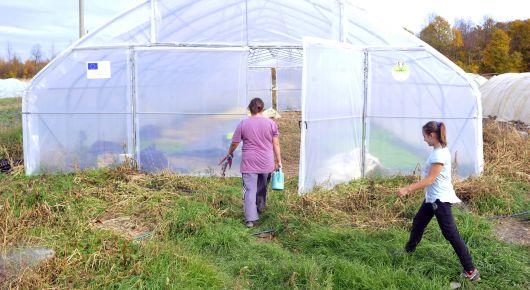Eurasia joins Committee on World Food Security dialogue on gender equality for food security and nutrition

Two half-days of intense discussions started yesterday aiming to present and receive feedback on the draft Voluntary Guidelines on Gender Equality and Women's and Girls' Empowerment in the context of food security and nutrition. More than 20 countries of Europe and Central Asia joined the virtual regional consultation, organized by the Committee on World Food Security (CFS) with the support of the Rome-based agencies FAO, IFAD, and WFP.
The regional consultation gathers participants from governments, civil society organizations, the private sector, agricultural research organizations, UN bodies, and international financial institutions to receive inputs, comments, and suggestions on how to best align the Guidelines with regional and national priorities and needs.
As the Guidelines note, gender equality and women’s and girls’ empowerment is essential to the realization of human rights, including the right to adequate food, achieving all Sustainable Development Goals of the 2030 Agenda for Sustainable Development, as well as ensuring food systems that are economically, socially, and environmentally sustainable. Therefore, the document was developed to help governments, development partners, and other actors realize these objectives.
“Hunger and malnutrition rates are growing globally, disproportionally affecting women and girls,” said Tanja Gren, Permanent Representative of Finland to FAO, WFP, and IFAD. “Thus, urgent action is needed to counter challenges, gaps, and barriers hindering progress in achieving gender equality and the full realization of women’s and girls’ rights in the context of food security and nutrition.”
“The Guidelines will provide specific policy guidance based on good practices and lessons learnt on gender mainstreaming, gender transformative interventions, and innovative solutions to support a more coherent and comprehensive approach,” added Tomas Duncan Jurado, Permanent Representative of Panama to the Rome-based agencies.
The discussion is framed by nine key areas where change is the most needed, such as women in policy- and decision-making, elimination of violence and discrimination against women, access to education, knowledge, and information services, the economic empowerment of women in the context of sustainable food systems, and access to natural and productive resources. These are in addition to access to labour markets and decent work, reduction and redistribution of unpaid care and domestic work, the ability to choose healthy diets and good nutrition, social protection and, finally, food and nutrition assistance.
The inputs received during these two days of consultation will feed into the preparation of the final draft of the Voluntary Guidelines planned to be presented for consideration at the Plenary of the CFS in October 2022.
The preparation of the Voluntary Guidelines on Gender Equality and Women's and Girls' Empowerment is funded largely by Finland, France, Spain, and Sweden. FAO, IFAD, and WFP provide financial and technical support to the Secretariat.
28 September 2021, Budapest, Hungary
